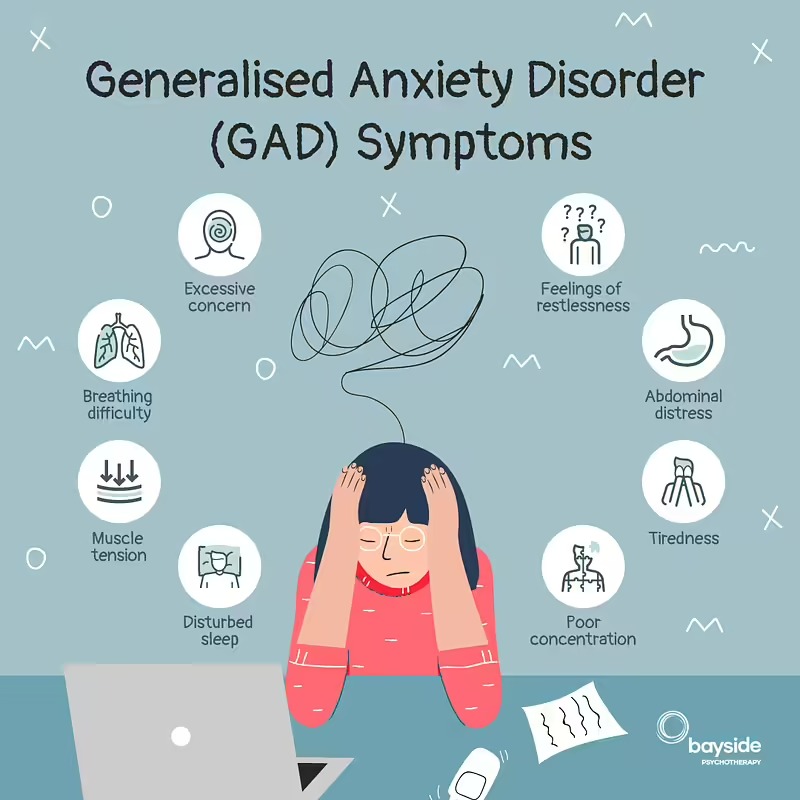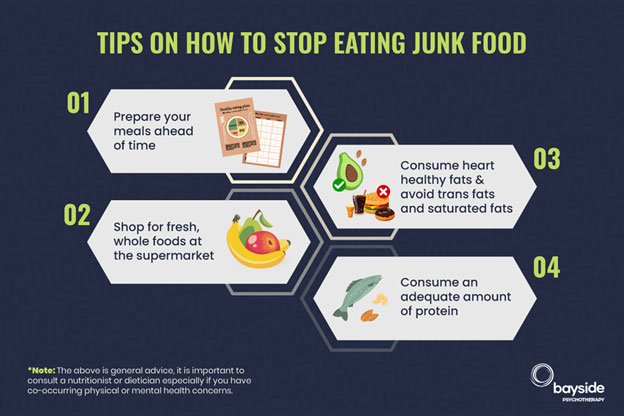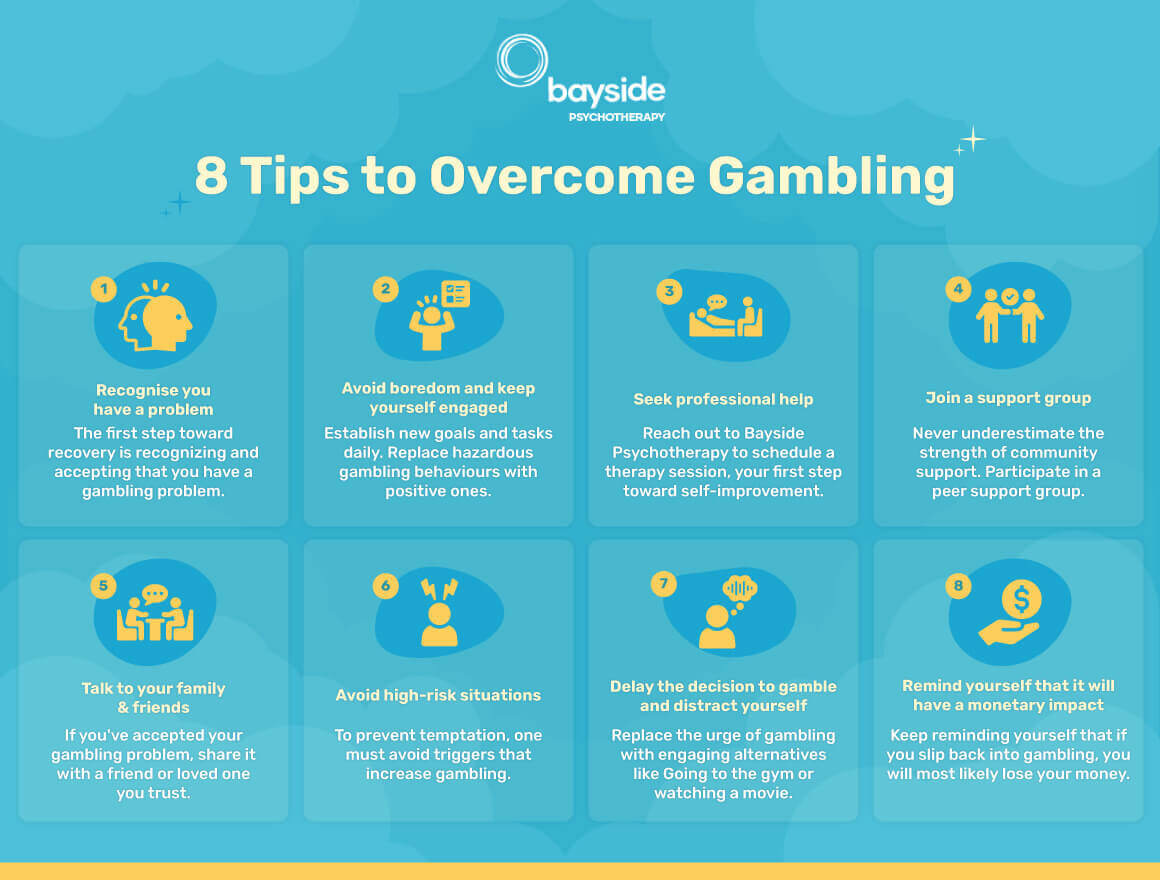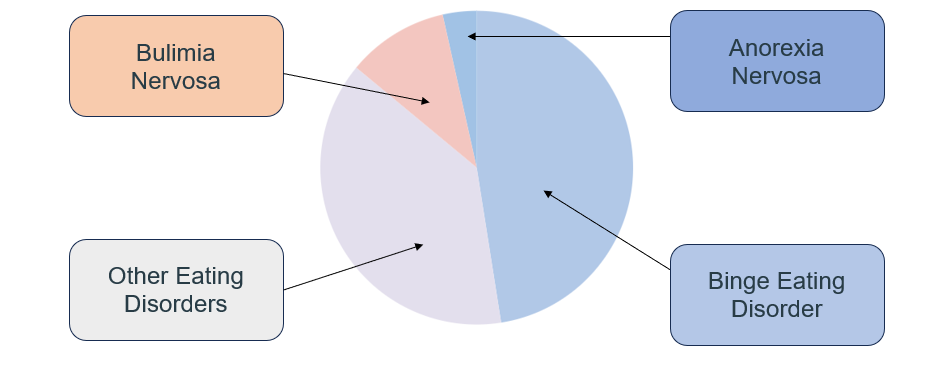7 Tips to Break Away From Binge Eating
When was the last time you sat down to watch TV or a movie with a bowl of buttery popcorn or a tub of your favourite icecream? You reach your hand or spoon into the bowl to get some more, and “oops”, it’s all gone! I’m sure this has happened to every one of us at some point. We end up mindlessly binge eating our way through snacks, consumed by what’s on the screen. But what happens when these one-off episodes of binge eating become a habit?
Understanding what a binge eating disorder is
Binge eating involves consuming vast quantities of food in a short amount of time. Even when not hungry. While everyone indulges and overeats once in a while, engaging in binge eating too often can lead to a binge eating disorder.
To help you understand binge eating better, let’s look at a hypothetical example of what binge eating might look like. Let’s say you devour a big lunch at home and then step out afterwards to pick up some groceries. On your way back, McDonald’s catches your eye, so you nip into the drive-through to grab an ice-cream sundae. But you can’t resist. So you end up ordering a Big Mac Combo too.
In 2013, Binge Eating Disorder (BED) was officially added to the diagnostic and Statistical Manual of Mental Disorders (DSM-5). For binge eating to be classified as a disorder, it must be followed by distress and a sense of lack of control.
Sometimes, a person may binge eat a particular food that provides them with perceived comfort. Many people find that sweets and desserts make them feel good when they feel emotionally low, and so end up eating such foods whenever they need a ‘quick, pick-me-up’. When this cycle repeats itself consistently, a food addiction forms, and there is a dependence on that food to feel better.
How does binge eating disorder affect your physical and mental health?
Like other mental disorders, binge eating disorder comes with a specific set of adverse effects. Here are some ways in which binge eating can affect your physical and mental health:
Obesity and related diseases
It’s common for those with a binge eating disorder to consume more calories than they burn each day. Binge eating has long been associated as a common contributor to obesity. This can lead to fatal heart conditions, high cholesterol, high blood sugar problems and even high blood pressure – increasing one’s risk of stroke and heart attack.
Low self-esteem
Negative psychological and social problems often arise as a result of binge eating. Associated obesity is a common issue that causes people to feel low about their weight and appearance. This can lead to an emotional eating issue which can lead to further binge eating episodes. This cycle is very difficult to break once habits have formed.
Depression and mood disorders
What is unknown to many people, is that binge eating often occurs as a result of depression. Both binge eating and depression negatively impact the other. This means that someone with depression is more likely to suffer binge eating episodes. Comparably, someone with a binge eating disorder is more susceptible to suffering from depression and other mood disorders.
How to stop binge eating
Reaching out to a mental health care professional can significantly help those with a binge eating disorder. But if you don’t have access to one, don’t worry, here are a few additional tips:
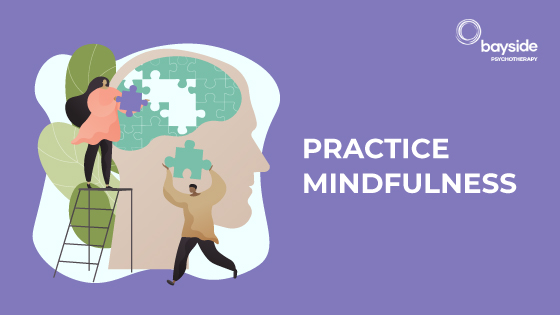
1. Eat every bite mindfully
When was the last time you paid full attention to the taste and texture of your meal? We are so busy watching TV, talking, or scrolling through social media that we often forget to pay heed to what we are consuming.
The next time you sit down for a meal, take 10 seconds to look at your food before you start eating. Indulge in the smell of the food coming from your plate. Take everything in. With every bite, pay attention to how your food tastes, all the spices and ingredients. When you make the experience of eating more mindful, you learn to appreciate every bite while slowing down the entire process.
This buys your mind and stomach time to understand when you are full.
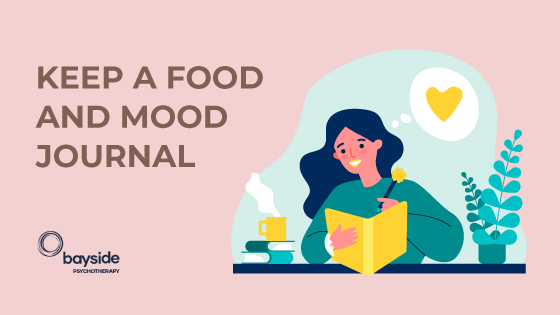
2. Keep a food diary
While this one might sound a little tedious, it will help you keep a tab on the food you eat.
If you don’t like the idea of writing in a diary, there are mobile apps where you can log what you eat each day, and it automatically counts the calories for you.
Calories may not be your main focus, but tracking them will help you understand your binge eating better. It will also help you identify specific foods you find yourself indulging in. This can help persuade you to change things up a little and promote a healthier lifestyle. Some apps also allow you to track your mood each day, helping you draw associations between the food you eat and how you feel.
3. Eat regular meals
Skipping meals can make you more likely to reach out for larger amounts of unhealthy food.
Eating wholesome, full meals at regular times will help keep your blood sugar levels stable which helps you avoid making poor food choices. When you sit down for a meal, pay attention to your food intake by monitoring what and how much is on your plate.
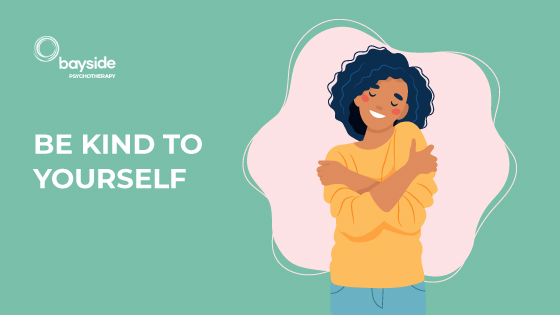
4. Break the association between food and feeling better
As children, we often begin to associate good or rather unhealthy food with a better mood.
Think back to the last time you ‘rewarded’ yourself with a yummy snack or decadent dessert. Break these associations by training your mind to feel good about yourself immediately after completing the task, not after that tasty treat.
Breaking the connection between eating certain foods and feeling good about yourself is an important step in your journey of breaking away from binge eating.
You can also start associating healthier food with feeling better. After all, the mind is malleable, and with a little commitment, can work the way you want it to!

5. Avoid depriving yourself of food
It is common for people on strict diets to end up binge eating. Why? Because they often restrict themselves so much that this causes them to almost obsessively crave unhealthy foods, causing them to indulge in hugely caloric cheat meals. Before they know it, this cheat meal turns into a cheat day and so on.
While we understand that it’s important to regulate and monitor what you eat when trying to lose weight, it must be understood that this doesn’t mean complete restriction. Instead, allow yourself a small portion of your favourite foods once in a while. This will satisfy your cravings and help stop you from binging on those foods you feel deprived of.
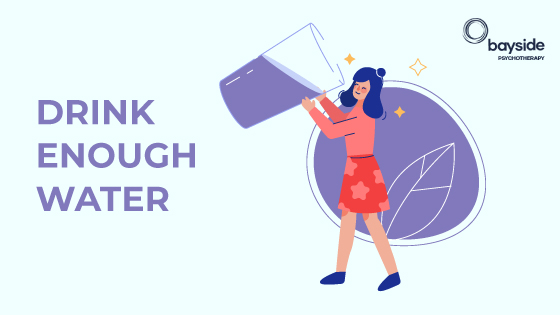
6. Stay hydrated
One of the most important things to do when battling binge-eating is to learn to understand your body and listen to its needs. Sometimes, when you start craving a sweet or a salty snack, first try drinking a tall glass of water. Chances are, your body just needs to re-hydrate.
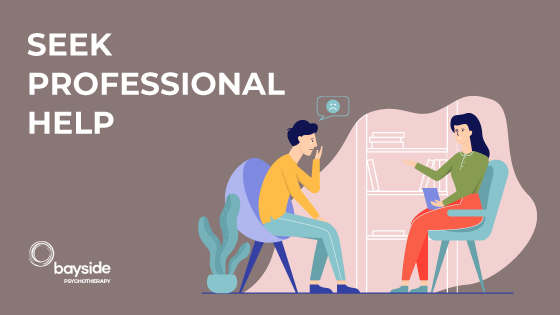
7. Replace unhealthy snacks at home
We often stock our kitchen cupboards with unhealthy snacks. Remember – what’s out of sight is out of mind. Next time you go to the supermarket, purchase healthier snacks that will satiate your hunger and cravings while also being nutritious for your body.
Look for foods that are rich in fibre – this will help you feel full for a longer time and cut your cravings too. Changing up your snacking habits will help you in your journey to beat binge eating, especially in the initial stages.
While the need and urge to binge eat can strike at anytime, taking small steps to overcome it can go a long way.By focusing on small achievements, you will soon find new habits starting to form.
The next time you feel like you are slipping down the slippery slope of binge eating, remind yourself of your commitment to your goal. This should help you stay on track.
However, willpower alone won’t address the inner conflicts associated with food and managing challenging emotions. Feel free to speak to one of our professional therapists for binge eating treatment. You can link up through a confidential and secure video conferencing session – anywhere in Australia or call 03 9557 9113 for an appointment in our Melbourne clinic. Professional help is just a click away. All you need to do is reach out.
Here are a couple of blogs written on this topic you might find useful:
Choosing the right therapist: The 5 mo...
Choosing the right therapist can be difficult. Different problems and diff.
Creating Healthier Workspaces: How str...
Employee mental health is pivotal to overall workplace wellbeing, impacting individual performance, job satisfaction, and organ.
From High Stakes to Healing: 8 Tips To...
Gambling activities have become more accessible and convenient due to the proliferation of casinos and the rapid growth of online gambling platforms. Mo.
An Examination of Bulimia Nervosa Amon...
Bulimia nervosa is a serious eating disorder that can significantly impact an individual's physical and psychological health. Characterised by recurrent.







